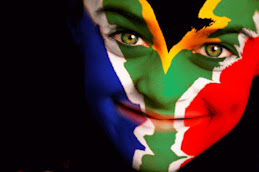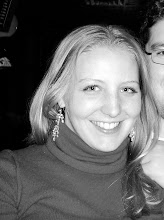 It’s a very interesting time to be a student of both South African and American politics and the democratic process. SA, like the rest of the world, is following the US election campaign with piqued interest. I have also become slightly obsessed with it, as I woke up at 3:00am to watch two of the US presidential debates live. (With the time change South Africa is six hours ahead of the US.) I was a little miffed when the analysis following the final debate was cut off at 5:30am for World Sport. Who watches sports at that hour of the morning anyway? The global media coverage of the US election comes with an appreciation of the fact that whomever Americans elect as their next president has implications, not only for their own country, but also for the world. Americans have a profound responsibility when they vote, as many of the policy decisions the next US president will make will have a direct impact on people throughout the world. As not of the world, but with the acknowledgment that I am in it, I implore the Americans following this blog to make an informed choice on 4 November. (I don’t think that my absentee ballot will be counted unless the vote in my district is close.)
It’s a very interesting time to be a student of both South African and American politics and the democratic process. SA, like the rest of the world, is following the US election campaign with piqued interest. I have also become slightly obsessed with it, as I woke up at 3:00am to watch two of the US presidential debates live. (With the time change South Africa is six hours ahead of the US.) I was a little miffed when the analysis following the final debate was cut off at 5:30am for World Sport. Who watches sports at that hour of the morning anyway? The global media coverage of the US election comes with an appreciation of the fact that whomever Americans elect as their next president has implications, not only for their own country, but also for the world. Americans have a profound responsibility when they vote, as many of the policy decisions the next US president will make will have a direct impact on people throughout the world. As not of the world, but with the acknowledgment that I am in it, I implore the Americans following this blog to make an informed choice on 4 November. (I don’t think that my absentee ballot will be counted unless the vote in my district is close.)When I’m introduced as an American people will often ask whom I’m voting for within the first
 two minutes of conversation. When I first received this question in small talk with new acquaintances I was slightly taken aback. Discussing politics in the US isn’t explicitly taboo, but it is certainly not considered “polite” conversation, especially with a person one has just met. But here in SA, politics permeate daily conversation, especially in the light of recent events. When I was formally introduced to the township congregation at Machibsa where I am placed, I was asked in front of everyone by one of the worship leaders, “Will you be voting for a black man in the election?” (The question is often unavoidable. For those of you who know anything about my political affiliations, you can probably guess how I responded.)
two minutes of conversation. When I first received this question in small talk with new acquaintances I was slightly taken aback. Discussing politics in the US isn’t explicitly taboo, but it is certainly not considered “polite” conversation, especially with a person one has just met. But here in SA, politics permeate daily conversation, especially in the light of recent events. When I was formally introduced to the township congregation at Machibsa where I am placed, I was asked in front of everyone by one of the worship leaders, “Will you be voting for a black man in the election?” (The question is often unavoidable. For those of you who know anything about my political affiliations, you can probably guess how I responded.) Political discourse is also alive and well in SA. By the completion of my year of service there will have been three presidents: Thabo Mbeki, Kgalema Motlanthe, and in all likelihood Jacob Zuma. Mbeki resigned in the political fallout of a Pietermartizburg High Court ruling in favor of Zuma. Motlanthe was appointed as a transitional leader between now and the next presidential election in April. The majority, the African National Congress (ANC), may be facing a breakaway party in the election. Although I have reduced the current political situation to a few sentences, it is infinitely more complex. As I learn more about the history of SA as the context in which these politics play out, I am slowly peeling away layers of understanding.
Political discourse is also alive and well in SA. By the completion of my year of service there will have been three presidents: Thabo Mbeki, Kgalema Motlanthe, and in all likelihood Jacob Zuma. Mbeki resigned in the political fallout of a Pietermartizburg High Court ruling in favor of Zuma. Motlanthe was appointed as a transitional leader between now and the next presidential election in April. The majority, the African National Congress (ANC), may be facing a breakaway party in the election. Although I have reduced the current political situation to a few sentences, it is infinitely more complex. As I learn more about the history of SA as the context in which these politics play out, I am slowly peeling away layers of understanding.In addition to following secular South African politics, I have also been a part of the democratic process in the church. I participated in two recent ELCSA elections as an observer to ensure that they were “free and fair”. The first was for the national executive committee of the Young Adults League and the second was for the bishop of the South Eastern Diocese. (A diocese is the equivalent of a synod in the ELCA.) As American volunteers with no voting privileges, my YAGM colleagues and I in attendance were considered unbiased. We were recruited to pass out, collect, and count ballots. I’m discovering that the democratic process is an integral and often unavoidable part of life–in the US, SA, and the church–which is why it requires critical engagement in its many manifestations.


No comments:
Post a Comment